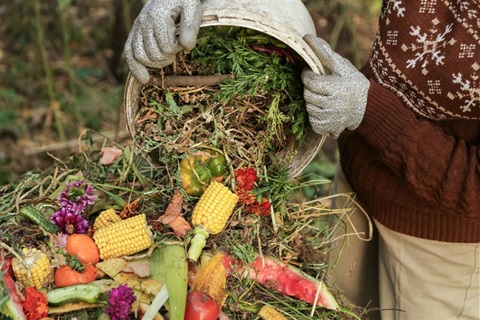Backyard Composting

Backyard composting is simple, rewarding, and an excellent way to boost your garden’s health. This age-old, sustainable practice has been employed for centuries and continues to play a vital role in organic gardening and farming today.
When added to your garden, compost improves soil structure, enhances moisture retention, and helps nutrients stay in the soil for longer, making them more readily available to your plants.
Getting Started
You can start composting any time of year — no green thumb required! Composting is a natural process, and once you get it started, nature takes care of most of the work. Best of all, you’ll create your own nutrient-rich soil will help your plants and garden vegetables thrive.
- Choose the right bin: Pick a compost bin that fits your space and budget. Even a simple, low-cost container made from chicken wire can work well.
- Find a good spot: Place your bin where it gets both sun and shade. Sun helps warm the pile in cooler weather, while shade prevents it from drying out too fast.
- Start with twigs: Add a base layer of small branches or twigs at the bottom of your pile to allow for airflow and drainage.
- Balance greens and browns: Aim for a 50/50 mix of “greens” (nitrogen-rich materials like grass clippings and food scraps) and “browns” (carbon-rich materials like dry leaves and straw). Too many greens may cause odor issues, so be sure to keep the mix balanced.
- Let It Breathe:
Regularly turn your pile with a shovel or pitchfork to boost airflow. Fresh oxygen keeps the bacteria active and your compost healthy.
Troubleshooting
Nobody is perfect, so don’t get discouraged if your compost pile doesn’t behave the way you’d hope it would.
Here are some tips for managing your compost pile:
- If your compost pile is not heating up like you’d like, your greens (nitrogen) and browns (carbon) might be unbalanced.
- If your compost pile is attracting flies or is smelly, try adding more browns to absorb any extra moisture.
- If your compost pile is soggy, try covering it up during heavy rain periods.